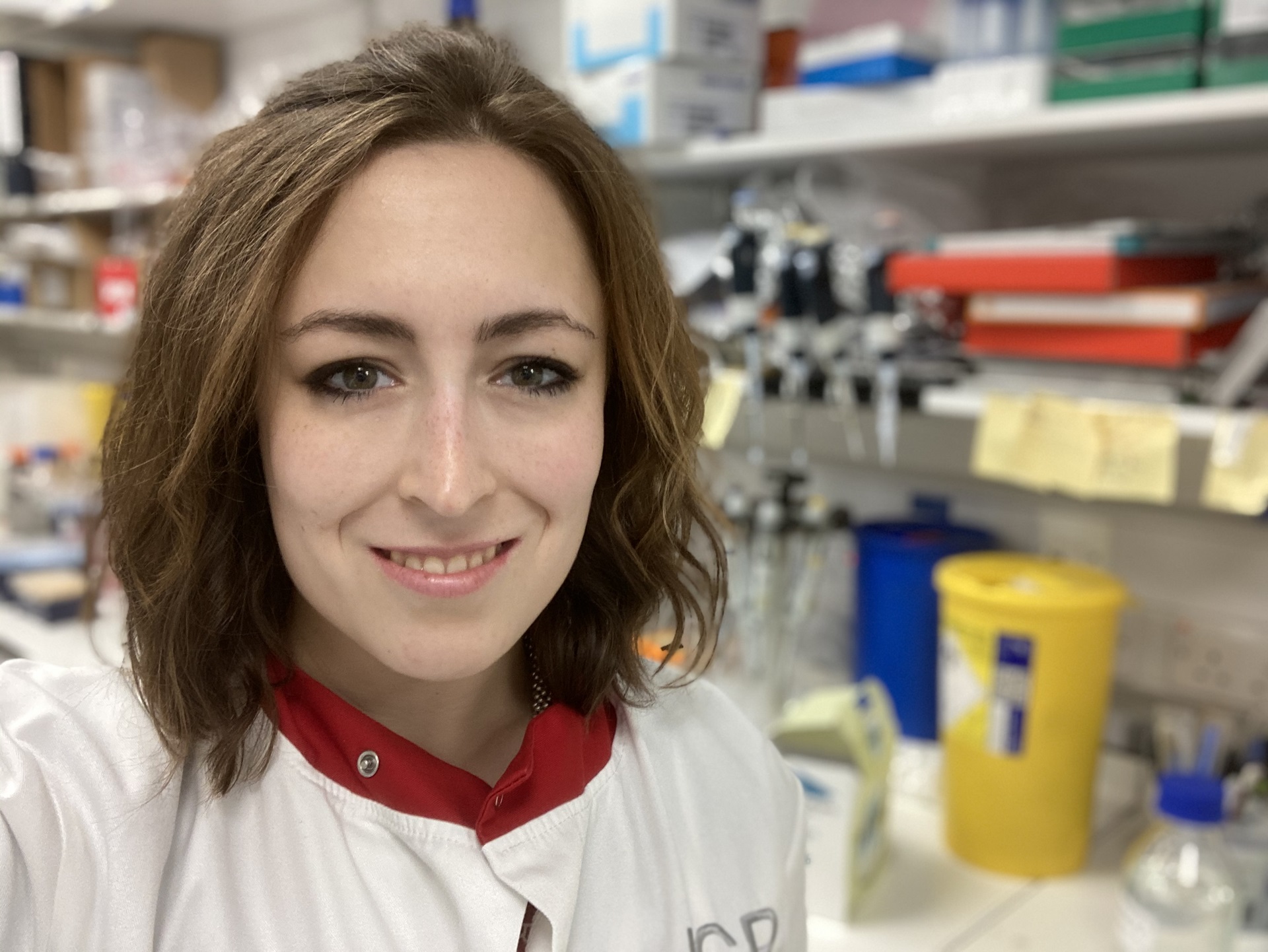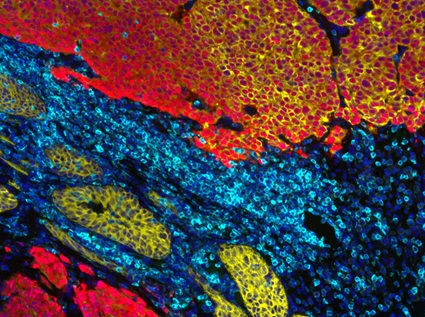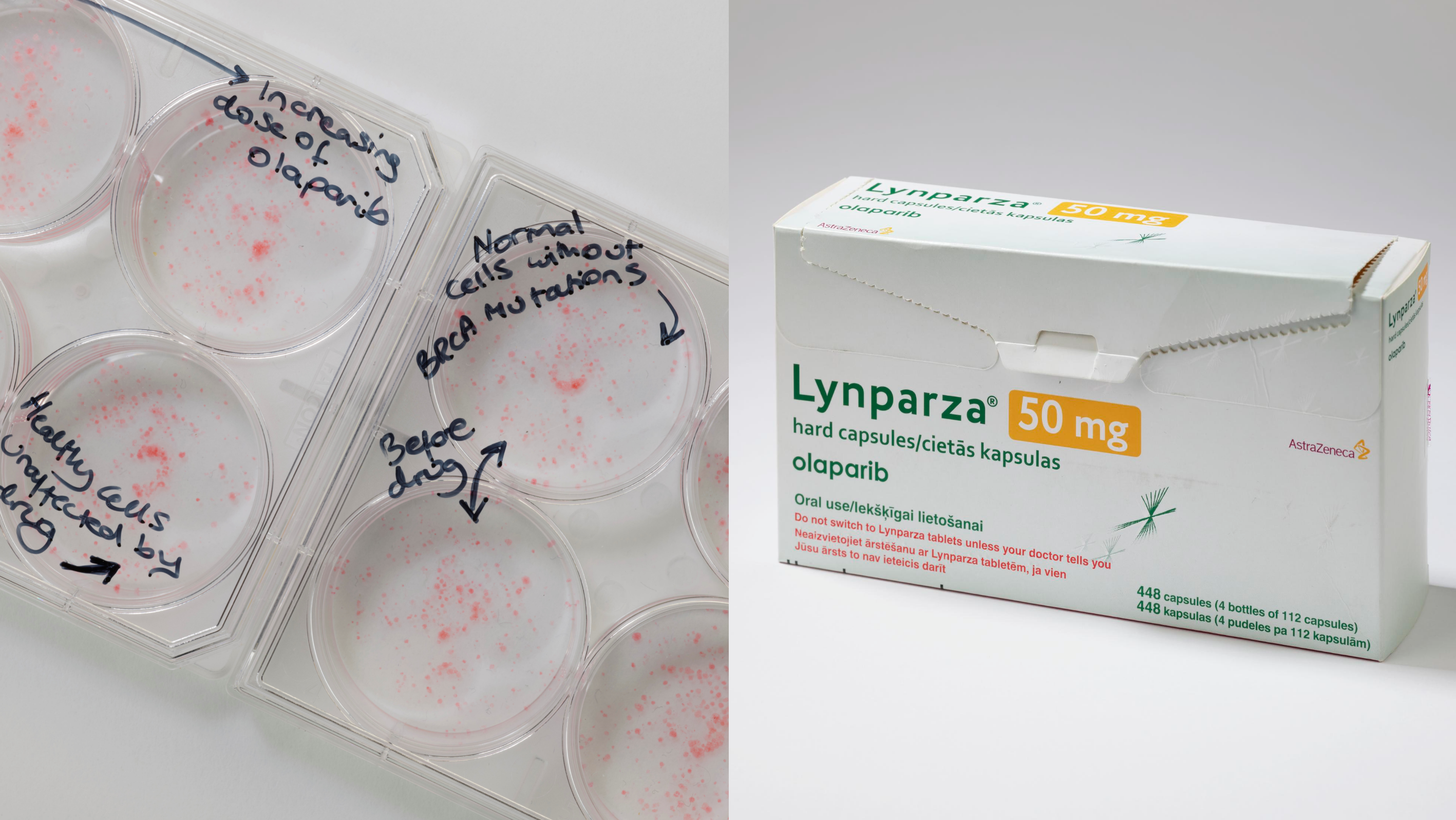Caroline Clarke is a fourth-year PhD student in the Genome Instability and Cancer Team at the ICR. Her PhD is carried out in collaboration with AstraZeneca as part of the industrial CASE (iCASE) studentship scheme. She is focusing on understanding how cells repair damage to their DNA and its role in cancer.
What is your educational/work background?
I completed a BA and MSci in Natural Sciences at the University of Cambridge, specialising in Biochemistry. During this period, I undertook several research projects both as part of my studies and as a summer research student.
Why did you want to study at the ICR?
The ICR is a world-leading cancer research institute. Moreover, the ICR’s interdisciplinary approach to tackling our understanding of cancer really appealed to me.
Talk us through your typical day
I spend most of my days in the laboratory, carrying out experiments including tissue culture work, molecular and cellular biology work, and immunofluorescence microscopy. Lunch and tea breaks always provide me with a good opportunity to catch up with other students or ask colleagues for advice about experiments.
What big projects are you working on?
I am currently defining the molecular mechanisms of resection and the spatial/temporal recruitment of repair factors to sites of DNA damage – or put more simply, looking at how breaks occur in DNA and how the cell goes about fixing them!
What are you most proud of?
Presenting my work to researchers at the ICR’s Chester Beatty laboratories in Chelsea as part of a weekly series of informal talks given by students, postdocs and scientific officers. It was great to gain experience in presenting my work to others as well as an opportunity to get feedback on my project.
How do you take part in life at the ICR outside your studies?
I was the treasurer for the Student Committee for the Chelsea site, which allowed me to get involved in the organisation of events and sports activities for ICR students. These include an annual cross-site student conference, weekly badminton and Zumba sessions, welcome events for the new students, an annual student away weekend, a hiking trip and a Christmas party.
Who do you collaborate with at the ICR and elsewhere?
I collaborate with many other groups at the ICR, including researchers in the light microscopy and flow cytometry facilities and the functional proteomics team. Outside of the ICR, my project is linked with AstraZeneca under the iCASE scheme.
What opportunities has studying at the ICR given you?
The ICR has provided the opportunity to study for my PhD in a world-leading cancer research organisation. I appreciate the range of internal training opportunities that are enabling me to broaden my skill set and prepare me for both for my PhD and future career.
What’s your favourite part of life at the ICR?
The people and the atmosphere of the ICR. The environment is both very driven and welcoming and I love always being able to find someone to discuss my ideas with or ask for help.
What are you learning on your industrial placement?
My industrial placement has allowed me to approach my project from a different perspective, ultimately widening the scope of my PhD to also include a more translational angle. I’m gaining new skills and experience, as well as learning about how industrial pharmaceutical research is carried out. In particular, I’m experiencing first-hand how collaborations between academia and industry can accelerate research, which is very exciting to see.
How are you benefiting through partnering with industry?
Having supervisors both at the ICR and AstraZeneca allows me to get different perspectives on my results and my industrial placement is allowing me to benefit from the expertise and resources in industry.
What differences have you experienced between academic and industrial research?
Academic and industrial research laboratories have very distinct research cultures, and completing an iCASE PhD has allowed me to benefit from experience in both environments.
What do you do to wind down?
I enjoy acrylic painting, hiking and catching up with friends.


